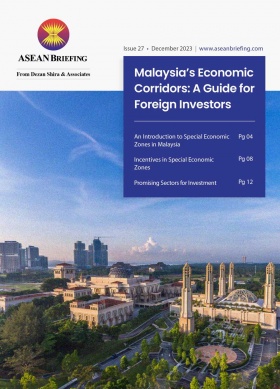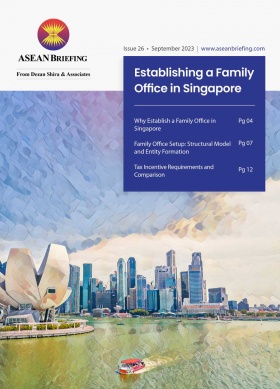Saudi Arabia and Indonesia Collaborate to Elevate the Assurance of Halal Products
Saudi Arabia and Indonesia signed a memorandum of understanding (MoU) on Halal product assurance cooperation in addition to the mutual recognition of each other’s Halal certificates. The agreement was signed between Indonesia’s Halal Product Assurance Organizing Body (BPJPH) and the Saudi Food and Drug Authority.
Importantly, the agreement also expands to cooperation in training, research and development, and the laboratory analysis of Halal products.
Indonesia’s huge Halal market
As the world’s most populous Muslim country, Indonesia is naturally also the world’s largest Halal market, particularly for the food, tourism, cosmetic, and pharmaceutical sectors. Before the pandemic, global spending on Halal products reached over US$2 trillion with Indonesian consumers spending some 10 percent or over US$200 billion of this total on Halal products and services.
The government has taken into consideration the time businesses need to prepare their operations to be Halal compliant. Therefore, the government has set stages for Halal certification based on product type.

According to GR 39/2021, the following goods and services must be Halal-certified:
Goods
- Food and beverages;
- Pharmaceuticals;
- Cosmetics;
- Chemical products;
- Genetically modified products;
- Biological products; and
- Other goods people utilize.
Services
- Processing;
- Storage;
- Packaging;
- Distribution;
- Animal slaughter; and
- Sales.
Indonesia is aiming to be a global Halal hub, and its Muslim consumers are expected to spend some US$247 billion on Halal food and beverages alone by 2025.
Where are the other opportunities for Saudi businesses in Indonesia?
Electric batteries
A meeting between Indonesia’s Coordinating Minister for Maritime Affairs Luhut Binsar Pandjaitan and Saudi Crown Prince Muhammad bin Salman in March 2022 revealed that Saudi Arabia was interested in investing in Indonesia’s electric battery industry.
Indonesia wants to increase production to reach a battery capacity of 140 GWh by 2030 from which 50 GWh will be allocated for export. The remainder will be used for Indonesia’s domestic electric vehicle industry — mainly for motorbikes. With Indonesia looking to boost investment in its EV battery sector to US$33 billion by 2033, the country presents ample opportunities for foreign EV manufacturers.
Capital city investments
Indonesia has also sought Saudi investments for the development of its new capital city, in East Kalimantan province. The new city, set to be called Nusantara (Archipelago), will cost an estimated US$32 billion to build with Saudi Arabia willing to commit its investment through Indonesia’s newly established US$10 billion sovereign wealth fund.
Nusantara will require soft and hard infrastructure, such as for the development of urban utilities, toll manufacturing, seaports and airports, and network and communications, among others.
Indonesia’s access to the RCEP
On August 30, 2022, Indonesia’s parliament approved the country’s membership in the Regional Comprehensive Economic Partnership (RCEP) trade pact and became the latest country in ASEAN to join in what is the world’s largest free trade agreement.
Through Indonesia, Saudi investors can access this vast market, which is estimated to cover 30 percent of the global GDP (about US$25.8 trillion) and 30 percent of the world’s population.
Further, the RCEP presents ample opportunities for Saudi businesses to better integrate into regional value chains and attract investments.
About Us
ASEAN Briefing is produced by Dezan Shira & Associates. The firm assists foreign investors throughout Asia and maintains offices throughout ASEAN, including in Singapore, Hanoi, Ho Chi Minh City, and Da Nang in Vietnam, in addition to Jakarta, in Indonesia. We also have partner firms in Malaysia, the Philippines, and Thailand as well as our practices in China and India. Please contact us at asean@dezshira.com or visit our website at www.dezshira.com.
- Previous Article How to Register a Trademark in Indonesia
- Next Article Policy to Profit: Shaping ASEAN-GCC Investment Dynamics in 2024







